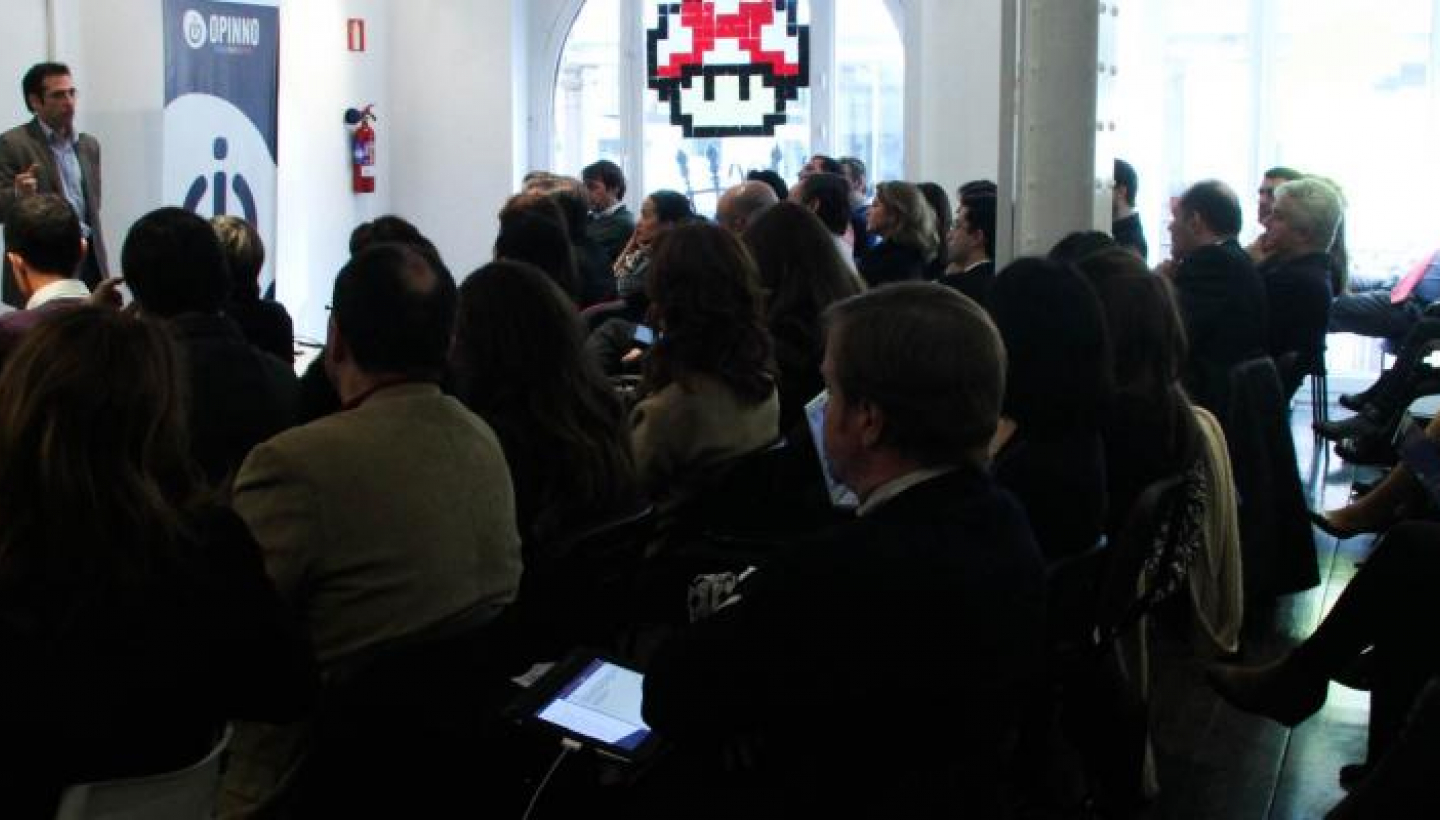On Thursday, January 30th, the fourth luncheon at the Opinno and MIT Technology Review Innovation Center took place with the help of the Association of Communication Directors of DIRCOM.
This edition of the luncheon at Opinno was held to address a major issue at hand for communication professionals, due to the current changes that are occurring in the information society: Transformation brought about by innovation in channels, content, audiences and management.
The experts raised a number of issues which today have answers that are rather unclear: What are the challenges faced by communication professionals? Are companies prepared to face the impact of this transformation on their messages, audience and results? What are the best practices to guide the evolution of both the talent and strategies in communication? How have they changed and what trends are affecting formats and tools?
Over sixty people attended the event and also listened to speeches by four exceptional speakers who wanted to present their career history, as well as different views on some of the questions raised.
Pedro Moneo, CEO and founder of Opinno, welcomed guests and explained the role of the company emphasizing its goal of "facilitating the transformation of organizations." Tommaso Canonici, VP of Opinno Think, moderated the conversation.
Ignacio Pérez Dolset from the ZED Group, Bill Derrenger of ClearChannel, José María Palomares from ING Direct and Stephan Fuetterer from Best Relations were responsible for preparing an excellent day of conferences.
Ignacio Pérez Dolset (@ jperezdolset), cofounder of ZED Group, highlighted the birth of what he described as "the most impactful technology" that has ever seen: 3D glasses. In a speech that spoke roughly about the development of innovation in the world of communications, Dolset wanted to emphasize aspects that refer to changes that the communication field has experienced with a drive and increasing awakening of technology, "the opportunity for innovation is coming. The development of the digital industry is currently only 6%," he stated.
Bill Derrenger CEO ClearChannel, based his presentation on the five challenges that, in his opinion, are transforming today’s world of communication: Integrating a much more personal communication, loss of the fear of managing social networks, constant innovation by testing ideas without killing them before they are developed, finding the return of new channels and the ability to adapt to what the market wants, finding new solutions to new problems.
Furthermore, Derrenger used his twelve years in the world of advertising, prior to his work as a communicator, to ensure that the information society is in a constant change due to, the economic crisis, in Spain’s case, and the digital crisis for the rest. Above all, he stressed the importance of direct communication stating, "Advertisers will speak directly with consumers through social networks and this creates a huge impact on their results."
José María Palomares (@ chemapalomares), VP Communication, Public Affairs and Social Responsibility of ING Direct, highlighted two key points about the influence that innovation has had on the role of communication professionals: stressed the change of the paradigm, control over conversation and changing roles from reporter to coach. This marked an interesting course emphasizing that "79 % of companies will consider competing in the economy for their reputation because they depend on the admiration, respect and trust which inspire, as well as find new ways of doing things which is a strategic factor used to stand out and maintain the company."
Palomares also added that the radical change of media is caused by social networks and the weight of employee impact of images and corporate influence.
The role of DIRCOM as coach in your business and clear driver or "dynamic" innovator, gaining strength against its ability to create value through content, attract new formats, as well as better understand the expectations and their influence on public interests.
Stephen Fuetterer (@ sfuetterer), Founder and Director of Best Relations, Member of the Directive Board and Speaker for Innovation Dircom and author of the book My Community and Social Business, based his presentation on the ways in which man has innovated to communicate from prehistory to present day. Fuetterer emphasized that "new technologies are not the barrier to entry, in contrast, is the use of acceleration. The biggest problem we have had on the quality of the contents was making them appealing and impactful." He also stressed that innovating and communicating are essential verbs in the strategic plans of companies which contribute to strengthening the corporate image.
The four experts expressed the importance of training in new practices, tools and applications that are launching 'new ways of communicating’. It is a combination of ongoing exploration, curiosity, search for references and the ability to understand how elements of communication are being transformed and adjusted to the speed of which they innovate.



